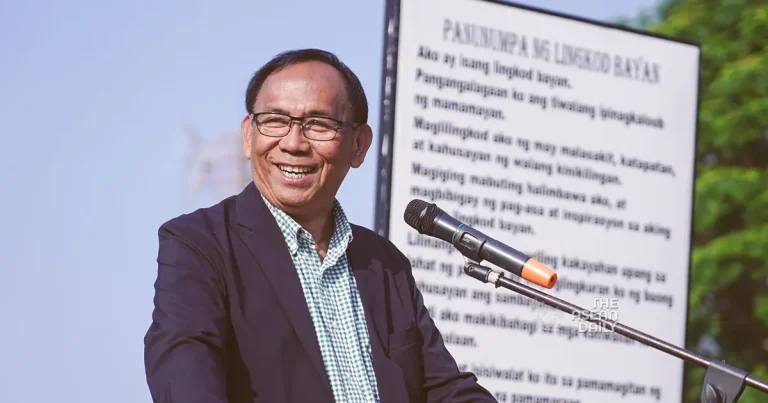25-4-2024 (MANILA) In a move laden with political undercurrents, Manuel Mamba, the provincial governor of Cagayan known for his pro-China stance and opposition to cooperation with the United States, has been summarily removed from office. The Commission on Elections (Comelec) announced on Wednesday that it had disqualified Mamba from serving his third term due to the illegal use of public funds during the 2022 election period, a decision that comes at a pivotal juncture as joint military exercises between Manila and Washington take place in his province.
The allegations against Mamba had initially led Comelec’s Second Division to disqualify him in December 2022. However, that decision was later overturned by a full meeting (en banc) of the commission due to technicalities related to the filing of the petition. The Supreme Court intervened on April 16, ruling that the petition was filed on time and directing Comelec to revisit the matter. Eight days later, the commission ruled that Mamba was disqualified, declaring his position vacant.
Mamba, however, has vowed to fight the decision, stating that his legal team would file an appeal with Comelec. He urged the people of Cagayan “to be calm and composed” as he would continue to serve as governor until a final decision was reached.
The timing of Mamba’s ouster has raised eyebrows among critics, who have suggested that his dismissal is linked to his divergent stance from the administration of President Ferdinand Marcos Jnr, which has become increasingly confrontational towards China while strengthening the Philippines’ defensive alliance with the United States.
Malou Tiquia, a political analyst and supporter of former president Rodrigo Duterte, recently posted on Facebook a list of provinces and cities, including Cagayan, with a caption suggesting that governors and mayors who did not follow orders were subjected to suspensions, funding cuts, or removal from office.
Retired Supreme Court associate justice Antonio Carpio, however, defended the legality of Mamba’s dismissal, stating that “after the Supreme Court ruled that the petition [against Mamba] should be reinstated, the decision of Comelec came out as a matter of course. The decision of the Supreme Court was correct.”
A sitting member of the House of Representatives, who declined to be named, echoed Carpio’s sentiment, telling This Week in Asia, “there is nothing suspicious about it. The Supreme Court ruled that the petition to Comelec was filed on time.”
Mamba’s province of Cagayan has been embroiled in controversy this month over accusations of being “infiltrated” by thousands of Chinese nationals enrolled in private universities, with one congressman describing it as a “creeping invasion.” Mamba, however, downplayed the concerns, telling a TV news show that only about 400 Chinese were enrolled in the province and that he did not see any threat.
Mamba, a member of a political dynasty that has dominated Cagayan for decades, has been an outspoken supporter of China and a vocal opponent of the construction of US military facilities under the Enhanced Defence Cooperation Agreement (EDCA) in Cagayan. The province, located along the northern coast of the main island of Luzon, contains two EDCA development sites.
This year’s edition of the Balikatan – joint Philippine-US military exercises that began Monday and continue until May 8 – will include a “counter landing drill” in northern Luzon, further highlighting the strategic importance of the region.
Mamba’s dismissal comes at a time of heightened tensions between the Philippines and China over territorial disputes in the South China Sea, with the Marcos administration seeking to strike a delicate balance between asserting its sovereignty and maintaining economic ties with Beijing.




